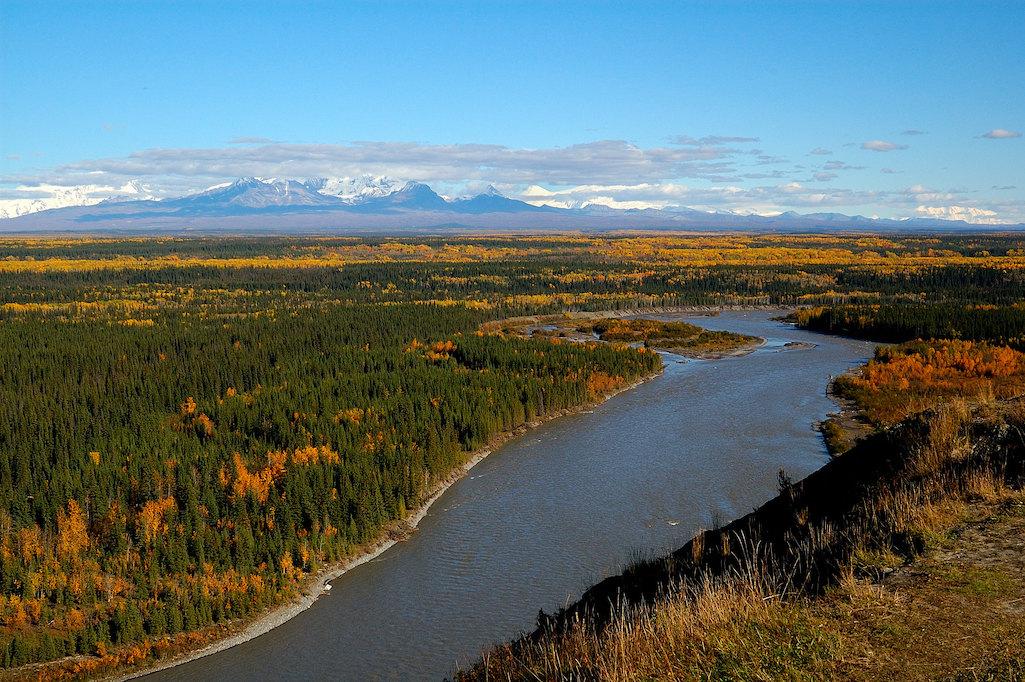
We need a better value of the ecosystem services -- nature -- provided by national parks/Wrangell Mountains and Copper River, NPS
There are places in the National Park System where seemingly endless forests store carbon, filter water and air, and provide habitat for countless species. There are snowfields and glaciers that help fill downstream lakes and reservoirs from spring into summer. There are places viewed as potential refugia for flora and fauna grappling with climate change impacts. There are marshes and mangrove forests that help prevent flooding.
But unlike the economic output of lodges, restaurants, and campgrounds, placing a value on these "ecosystem services" nature in the park system provides hasn't seemed to be a priority.
There is a generally accepted view in Washington, D.C., that big dollar numbers justify funding of the National Park Service and the park system. And so every year the Park Service crunches the "economic benefits" of tourism to the parks and applauds them. Last year the collective dollar amount was "a record" $50.3 billion, up from $42.5 billion in 2021.
Unfortunately, that dollar figure, built around "the number of visitors who visit each park, visitor spending patterns in local gateway regions, and regional economic multipliers that describe the economic effects of visitor spending in local economies," misses the total value of the National Park System, that which reflects the ecosystem services it provides.
"...we need a transformational shift in the way markets, and the discipline of economics more broadly, value nature," suggests the Paulson Institute.
At a time when we're losing biodiversity, when more than half of the bird species in the United States are in decline, when invasive species are crippling some ecosystems, a companion "ecosystem services" report to that economic analysis would be a welcome tool to lobby for both better preservation of the National Park System and expansion of it.
We're partway there, with spending traced to recreation in the park system. It was pegged at $2.1 billion in 2022. But that represented just 8.64 percent of the park system's economic output, according to the Park Service, and didn't place a dollar value on the forests, glaciers, wetlands, grasslands, rivers and lakes above and beyond that specifically associated with recreation.
Place numbers on those natural elements and the ecosystem services they provide and the value of the park system will skyrocket, and the surrounding communities will benefit, too.
"Flourishing communities, strong and resilient social institutions, thriving natural ecosystems and a stable climate underpin economic and societal prosperity," points out the Capitals Coalition, an organization striving to see by 2030 that "the majority of businesses, financial institutions and governments will include the value of natural capital, social capital and human capital in their decision-making and that this will deliver a fairer, just and more sustainable world."
An understanding and appreciation of the suite of ecosystem services — the benefits that we gain from natural systems, such as clean water, air filtered by forests, biodiversity, wildlife, carbon sequestration, etc. — would be just as, if not more, powerful than simply tracking sales and paychecks in calculating the value of the park system.



Comments
It may be more complicated because visitation creates impacts. Obviously people driving cars that emit CO2 and other pollutants. However, last time I visited Redwood National Park, a park ranger noted that they had EV charging at a park administration center that was free and open to the public. It wasn't convenient, but was something where they tried to provide a benefit to the visitor.
But as long as visitation is encouraged beyond minimal visits for scientific purposes, there will be negative impacts to the environment. But there doesn't necessarily need to be entry into a national park system for that. Other agencies like the Forest Service and BLM have responsibility for land management where ecosystems are valued. An example would be the Headwaters Forest Reserve in Northern California that's administered by BLM.
Yes. we have forgotten WE depend on nature, not the other way around.